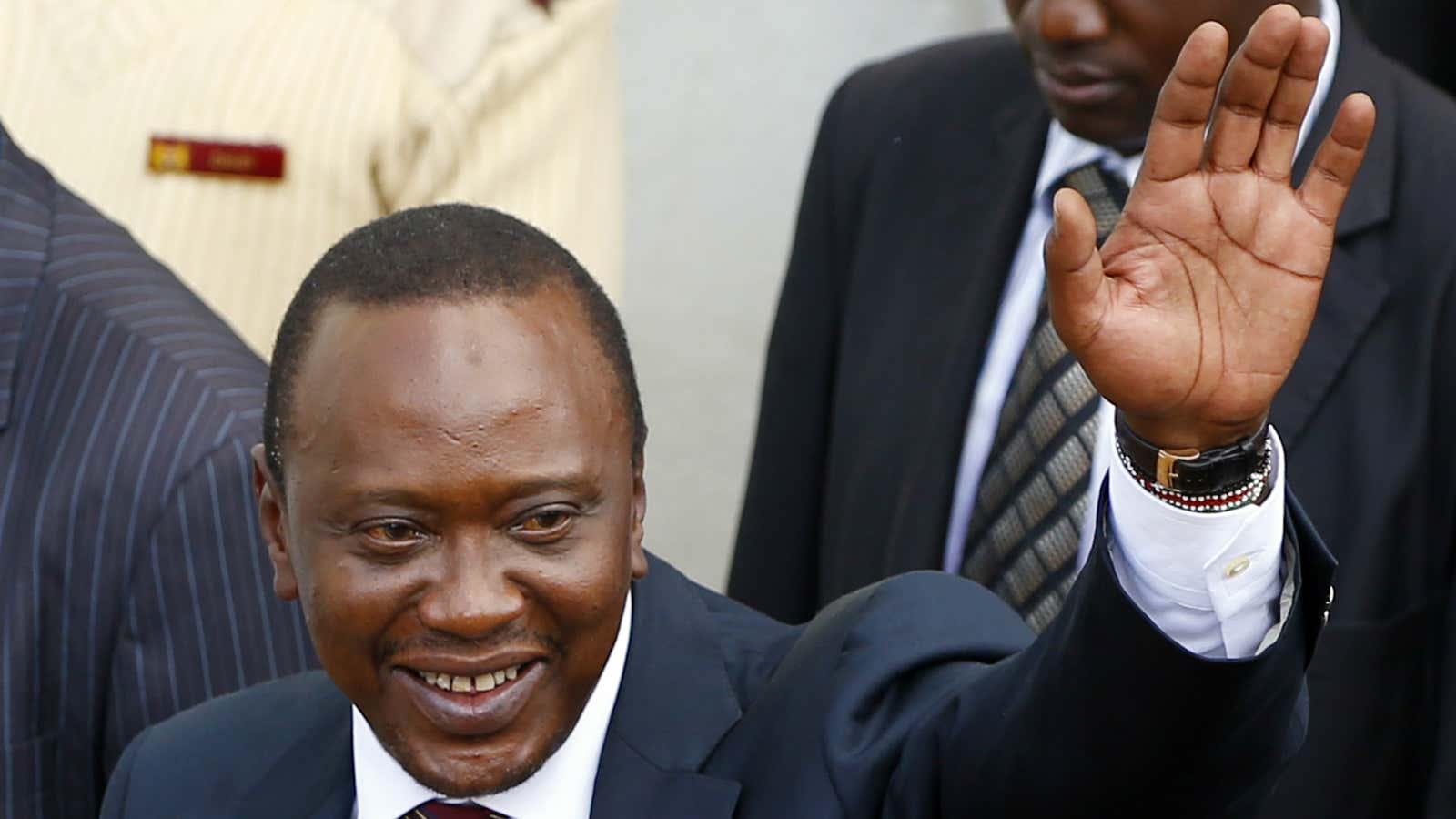Kenya’s president, Uhuru Kenyatta, may well think he’s scored big this week in Beijing by securing $5 billion worth of Chinese investment for his country and thumbing his nose at the West for shunning him on human rights charges. But it may be China that gains the most.
The deal, agreed during Kenyatta’s first state visit to the Chinese capital, includes energy projects, wildlife protection and, crucially, a rail link from the port at Mombasa to neighboring Uganda. China already has a significant presence in Kenya, as its biggest source of foreign direct investment—$474 million in total—and its second-largest trade partner. But $5 billion is a big commitment, given that bilateral trade was only $2.84 billion last year.
China’s first goal is closer ties with Kenya itself. Liu Guangyuan, China’s ambassador to Kenya, is pushing for Beijing to recognize the country as a strategic partner, a status that would place it ahead of most of Africa in the eyes of the world’s second-largest economy. By cozying up to Kenya’s new president, China can gain access to the country’s newly-discovered oil reserves.
Kenya is set to become East Africa’s first oil exporter by around 2016—a big shift from importing all its fuel at present—and may have up to 10 billion barrels in deposits. The UK explorer Tullow Oil is leading the charge, but may face political difficulties dealing with Kenyatta, when he is called to The Hague in November to face charges by the International Criminal Court for crimes against humanity during Kenya’s bloody 2007 elections. Chinese companies will have no such problem, and have already negotiated a partnership with Tullow (paywall) to operate in Kenya.
And Kenya’s just one part of the benefit this $5 billion will bring China. Beijing’s involvement in funding rail projects and close relationship with Kenyatta is likely to buy it access to the rail network that will allow it to reach Uganda, a landlocked central African nation where it has substantial economic interests. As Reuters reported last week, Uganda is borrowing crippling quantities of cash from China and has given it almost exclusive rights to build infrastructure in the country, promising loan repayments at a later date with money made from oil not yet drilled. In short, China is lending Uganda the money to pay Chinese companies to build infrastructure that ultimately will be used to move oil to China.
As an added bonus, establishing a dominant presence in Kenya and Uganda will give China better connections, both politically and in real infrastructure terms, with their other neighbors, such as the Democratic Republic Congo—the world’s eighth biggest copper producer—and Tanzania, which has East Africa’s second-largest supply of natural gas.
“China and Kenya have a strong and robust relationship,” Kenyatta told China Daily before his visit to Beijing, “and it’s not based on mineral resources exploitation, but based on investment, manufacturing and infrastructure development.” But in practice, China’s interest seems much more likely to be all of the above.
